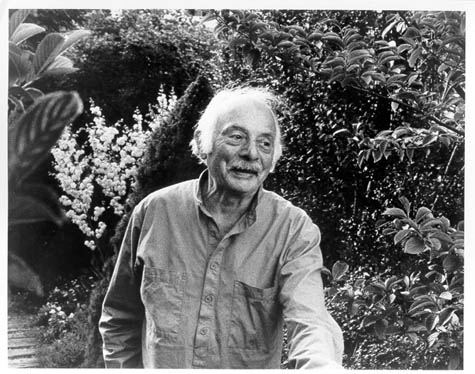
"In my youth, as might be expected, I had little knowledge of the world to draw on. But I had fallen in love with language and was excited by ideas, including the idea of being a poet. Early poetry is much more likely to be abstract because of the poverty of experience." |
“Vita Nuova" I abdicate my daily self that bled, Giving to love my undivided nature, Kindling my fire, the spirit that I keep, I have been otherwise a part-time creature, With many selves to fool myself with hope, And in myself a gentler self to weep.
Now I will peel that vision from my brain
Moon of the soul, accompany me now., In this poem, I feel like Kunitz is marking a change in himself and his style as a poet -"vita nuova," literally "new life." Because it is one of his older poems, "Vita Nuova" seems like it is more transitional - it's not as intimidatingly complex as his very early ones, which took some influence from the metaphysical poets, but it also isn't as grounded (for lack of a better term) as his later works (he would probably say he hadn't quite found his "middle style" yet). Giving to love my undivided nature,
Kindling my fire, the spirit that I keep,
I have been otherwise a part-time creature,
With many selves to fool myself with hope,
And in myself a gentler self to weep. These lines are probably my favorite in the entire poem. They toy with the ideas of 'self' (selves), 'masks' (fake or divided selves), but also seem to signify that he is remaking himself into a new, whole creature, and trying to come to terms with the contradictions that he finds. Contradictions and contrasts (life and death, particularly) show up often in his work. Overall, however, this poem is great because he seems to be declaring himself a poet, and recognizing that he is driven to write (and, arguably, to write from his own experiences).
|